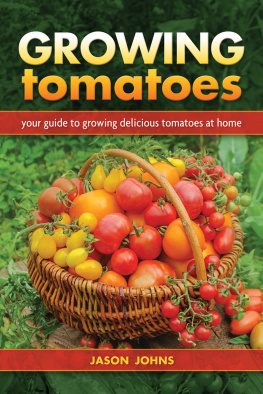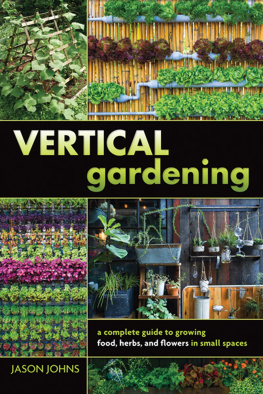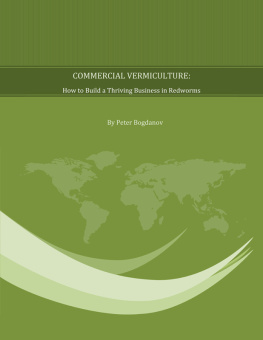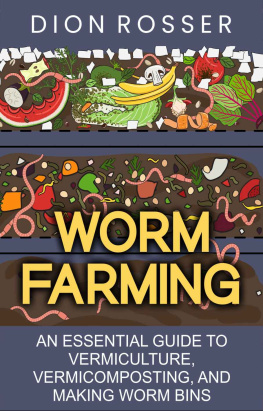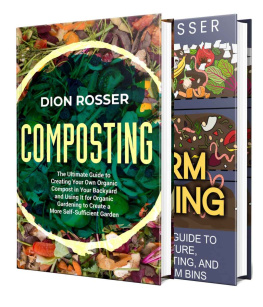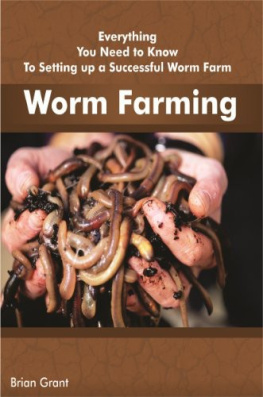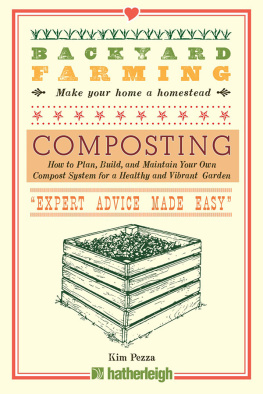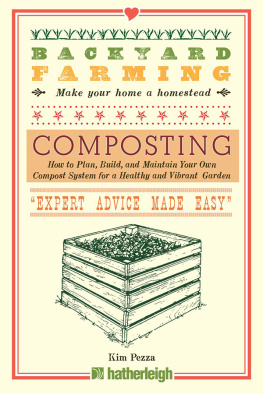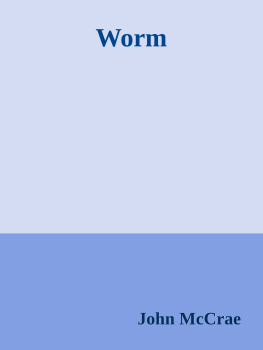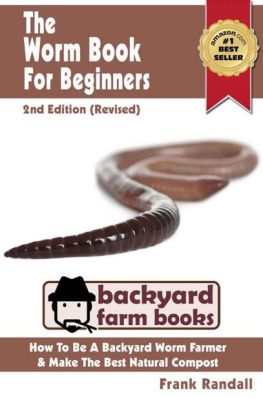Copyright 2015. All rights reserved worldwide.
No part of this publication may be replicated, redistributed, or given away in any form without the prior written consent of the author/publisher.
Visit me at www.OwningAnAllotment.com for gardening tips and advice or follow me at www.YouTube.com/OwningAnAllotment for my video diary and tips. Join me on Facebook at www.Facebook.com/OwningAnAllotment .
Introduction
Compost is essential for any gardener and many people will make their own compost with kitchen scraps, lawn cuttings and other garden waste. Whilst this compost is good and your plants will appreciate it, you can make an even better compost using your kitchen scraps that your plants are going to love you for!
Worm farming, or vermiculture is the process of turning your kitchen scraps into a high quality compost that is very much sought after. Many championship winning gardeners will use worm castings (the result of worm farming) to feed their plants so that they win the competitions. Worm castings are jam packed full of nutrients and most particularly micro-nutrients that your plants really need to thrive and grow.
Anyone can create a worm farm at home; it can be as big or as small as you want it to be, depending on how much compost you want to produce and the space available to you. A worm farm does not need to be a huge commercial sized venture and can be done in a relatively small plastic tub.
This book will teach you everything you need to know about worm farming, from why it is so popular and beneficial to exactly how to create and manage your own worm farm. Once your worm farm is set up it does not need a huge amount of work to maintain it. It is something you can do yourself or you can do it with your children who will be fascinated by the process!
Worm farming does not require any expensive materials as you can use simple plastic containers, newspaper and then the food waste from your kitchen. The most expensive part of a worm farm will be the worms but once you have established your worm farm you will have more than enough worms and can even turn it in to a commercial venture, as you will find out later in this book.
Anyone who is a keen gardener or who uses compost can benefit from worm farming. It is incredibly simple and produces a very high quality compost; just look online at the price of worm compost compared to traditional compost and you will notice a significant difference in price.
As you read this book you will learn everything you need to know about worm farming from choosing the right worms, setting up your worm farm, feeding your worms, harvesting your compost and caring for your worms so they produce high quality compost regularly.
This is one of the most enjoyable ways of producing compost and even if you already compost you can use vermiculture to create an extra special compost for when you want to give your plants that little something special. You will learn shortly just how beneficial worm castings are and how you can use them in your garden.
Enjoy learning all about vermiculture and how you can create your own worm farm at home. You will be surprised how easy it is and just how enjoyable worm farming is, plus the high quality compost will give your plants a much needed boost!
Vermiculture: What It Is and Why It Matters
Vermiculture or vermicomposting is the process of using a particular type of worm to take organic food waste from your kitchen and turn it into a high quality, nutrient rich compost that is beneficial for your plants. It is simple, convenient, silent and highly effective, turning your kitchen waste into a compost that is normally expensive to purchase. From an environmental point of view it saves energy, pollution from transporting your kitchen waste, filling up a landfill and it also helps to rebuild and fertilize your soil.
Because the worms turn organic waste into a nutrient rich compost it means that you do not need to spend money on fertilizers which are potentially harmful to the environment. It is a completely natural process and something that many more people should be participating in; it is natures way of recycling!
The compost produced by a worm farm helps to improve the aeration, structure and texture of your soil as well as helping it to retain moisture better. This is going to help your plants to grow stronger, have much deeper root systems and be far more tolerant to droughts.
Worms have been turning organic waste into top soil for millions of years and they eat organic matter, decomposing it in to a natural, nutrient rich soil which is referred to as worm castings or vermicompost. It is an excellent source of food for your plants that naturally replaces the nutrients your plants take from the soil and are lost when the plants are harvested.
One other big advantage of worm farming is that the resulting compost is full of beneficial microorganisms which your soil desperately need. These help to break down organic materials in your soil and make nutrients available to your plants.
Caring for your worms is simple, you just feed them organic waste from your kitchen. They will pretty much eat anything, though meat and dairy products should be avoided. Any vegetable or fruit scraps will be appreciated as well as leaves, grass clippings and so forth.
You may be forgiven for thinking that you can go out in the garden and dig up earthworms and use those in your worm farm which will do an okay job but they are not going to do the best job. The best are a type of worm called Eisenia Fetida or red worms which are found in the top foot and a half of the soil and are brilliant at breaking down waste matter. These can be bought from sites such as Amazon (click here for info) and will propagate in your worm farm. About every three months you will be able to harvest your worm castings to use as compost.
Worms are surprisingly easy to care for and once you have grasped the basics from this book you will find them indispensable and simple to look after.
Vermiculture has a lot of advantages and benefits both to you the gardener and from an environmental point of view. Worm compost is an ecologically sound product that is creating using organic materials helping you to reduce the amount of garbage you dispose of and the environment concerns surround that. You use readily available products in your worm farm and as your farm grows so you can sell on the worms and the castings to make a profit, all of which will be discussed in a later chapter.
As soon as your red wrigglers have started to produce castings you can start removing them if you prefer, though many people will leave them for about three months until there is enough castings to actually be of use.
The castings produce a compost that is highly sought after and actually very expensive to buy because it is so beneficial for your soil. It is packed full of nutrients and helps your soil to retain moisture as well as repopulate the soil with beneficial micronutrients.
Vermiculture is something that any gardener can do, regardless of how experienced they are and it is a good way to get some top quality compost for very little money. Over time as your worm farm grows you will produce more and more compost; initially it takes a bit of time for them to get going but as the number of worms grows so they will produce more compost for you. My opinion is that worm farming is important for you as a gardener and will help you grow some superb plants!


